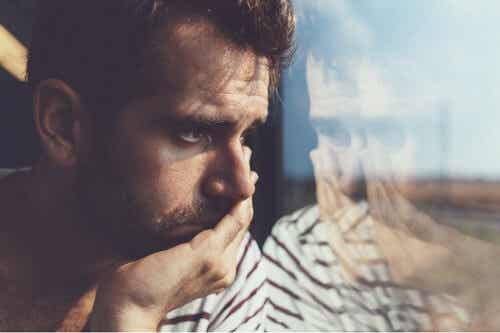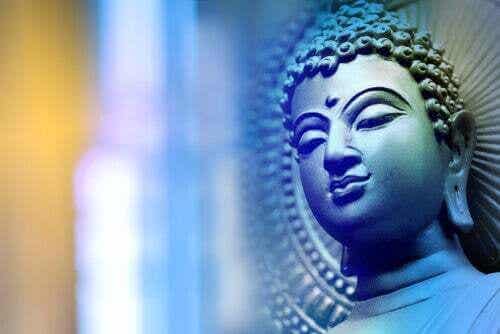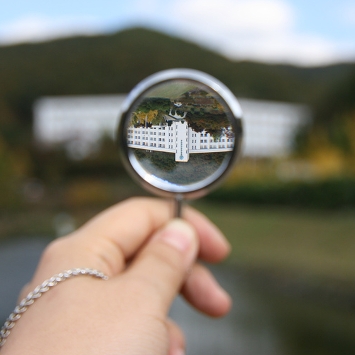When you think you can control something, you are wrong.

"If you have everything under control, it means that you are not progressing fast enough."
Mario Andretti.
On my recent trip to Berlin I got to reflect on how futile our constant attempts at control life and what happens to us every day.
In particular, as a personal growth enthusiast and blogger, I have reflected on the contrast between the teachings of personal development gurus and the apparent randomness that seems to dominate our days. In fact, most of the personal development techniques are based on the assumption that at each cause inevitably match a effect:
- If you learn to define your goals, you will reach your goals.
- If you establish good habits, your life will be less chaotic and stressed.
- If you know how to study effectively, your libretto will be a slew of 30 cum laude.
If, if and again if… and yet, despite our good will, something always seems to go wrong! So Andre, are you finally admitting that all these strategies are just bullshit ?! Exactly the opposite ... but you'll only find out if you keep reading (eh ... I know, I'm a bastard inside!).
Where were we? Oh yes! I got lost in my mind-sawing on control in a crowded Berlin airport.
It may have been the case, it may have been the Law of Attraction, or it may have been the sleepiness after sausage and sauerkraut, the fact is that I found myself browsing my favorite feeds on the iPhone and… BAM! There it is, an article by the excellent Leo Babauta, titled… guess what? “The Illusion of Control“.
Read in a few minutes, I found it the most effective answer to my reflections and I decided to make a free translation to share it with you. Enjoy the reading.
The illusion of control
When you think you can control something, you are wrong.
It is amazing how often we think we are in control of something, when in reality we are not at all like that. Control is aillusion. We continually define plans that we inevitably end up procrastinating. They taught us to define goals and then to carry out the actions that can lead us towards these goals, yet… we continue to fail! But despite this, we continue to want to control a future that cannot be predicted.
5 years ago, would you ever have been able to predict what happened: the economic recession, the earthquake and tsunami in Japan, the revolutions in North Africa? But without straying too far from our daily life: 5 years ago, would you ever have been able to predict where you are and what you are doing today?
Of course not. We do not know the future, much less can we control it. We like to think so, but the truth is a long way off. Yet we persist in believing inillusion of control. Every day we face a complex and chaotic world and we get stressed trying to control it:
- We try to measure every single thing, from our expenses to our physical activity, from our to-do list to the calories we ingest, under the illusion that these single factors faithfully reflect the complex mix of causes that determines the final result.
- We obsessively plan our future, our projects, our days, as if we had the power to manipulate external events.
What would happen if we finally got rid of this illusion of control?
Imagine a fish. A fish swims in a chaotic ocean that you don't remotely dream of controlling. The fish is not interested in defining plans, strategies or goals: the fish just swim without wanting to control. We, after all, are not that different from that fish, yet we continue to be attached to our illusion that we can control everything.
Give up this illusion: become like that fish.
- Stop setting goals and start doing what you want.
- Stop planning and just start taking action.
- Stop living in the future and focus on the present.
- Stop controlling others and just be nice.
- Stop being unmotivated and accept things as they are.
This might seem a compliant attitude towards life and in absolute contrast with our society dominated by the myth of productivity and aggression; actually, learning to live this way… is the most liberating of sensations.
Conclusions
Well .. what do you think? Did you like it?
I admit that I do not agree 100% with Babauta, but his article made me realize that there is actually a summary point between the philosophy of personal growth that would have a result correspond to every action, and the much more complex reality in which the results are apparently unpredictable.
I have come to the conclusion that it is our attachment toillusion of control which does not allow us to soar towards our most ambitious goals. In fact, we don't get the results we want when:
- we are too attached to the form, forgetting the substance;
- we continue to plan, without ever doing;
- we seek perfection instead of taking action.


























